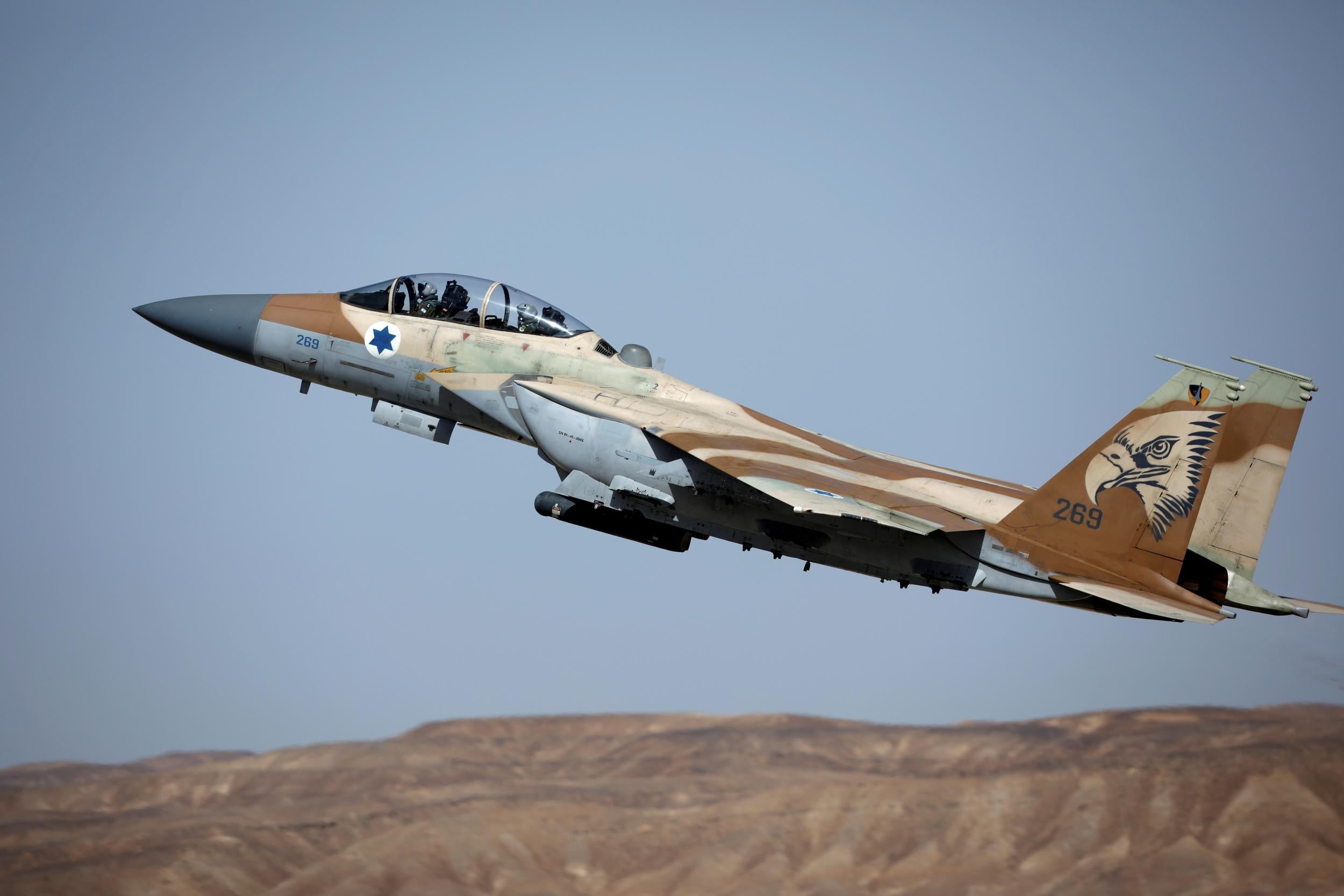Israeli air force jets kill two in rare targeting of Syrian chemical facility
Military science centre believed by the US to be involved in manufacture of chemical weapons targeted in 'non routine' Israeli bombing

The Israeli air force has targeted a Syrian military base in an air strike, killing two people and causing material damage, a statement from the Syrian army has said.
The bombing occurred near Masyaf in Hama province in the early hours of Thursday, army general command said, warning of the “dangerous repercussion of such hostile acts on the security and stability of the region”.
Local media said that the target was possibly a chemical facility. War monitor the Syrian Observatory for Human Rights (SOHR) said the site was a scientific research centre, sanctioned by the US as a "non conventional weapons agency". American officials believe the base is used for the manufacture of chemical weapons - a charge the Syrian government denies.

While Israel largely stays out of the complicated conflict next door, the border region is restive and Israeli air strikes in Syrian territory usually aim to prevent weapons smuggling to Hezbollah, the Lebanese militant group allied to Syrian President Bashar al-Assad.
More than 100 strikes are believed to have been carried out by Israel in Syria over the six-year-long war, although casualty reports are infrequent. Targeting a chemical site would also be a rare decision.
Amos Yadlin, a former head of Israeli military intelligence, tweeted that the reported attack was not routine and had targeted a Syrian military scientific centre.
"The facility at Masyaf also produces chemical weapons and explosive barrels that have killed thousands of Syrian civilians," he wrote.
Israeli officials' main worry as the Syrian conflict has evolved has become Iran’s political influence over the Assad government, making Syria a potential site for missiles aimed at Israel, as well as the presence of Iran’s Revolutionary Guards, Hezbollah and other Shia militias which take part in the fighting.
Both Hezbollah and Iran have sworn the destruction of the Jewish state.
An Israel Defence Forces (IDF) spokesperson declined to discuss reports of the strike in Syria, saying the army did not comment on operational matters.
On Wednesday the UN found that the Syrian government was responsible for a sarin gas attack on the rebel-held village of Khan Sheikhoun earlier this year which killed dozens of people.
The incident prompted US President Donald Trump to launch a missile strike on a Syrian air base as a "warning shot" - the first ever direct US intervention in the civil war.
The UN investigation also found that Assad has used chemical weapons on 20 separate occasions since the conflict began in 2011.
Join our commenting forum
Join thought-provoking conversations, follow other Independent readers and see their replies
Comments
Bookmark popover
Removed from bookmarks